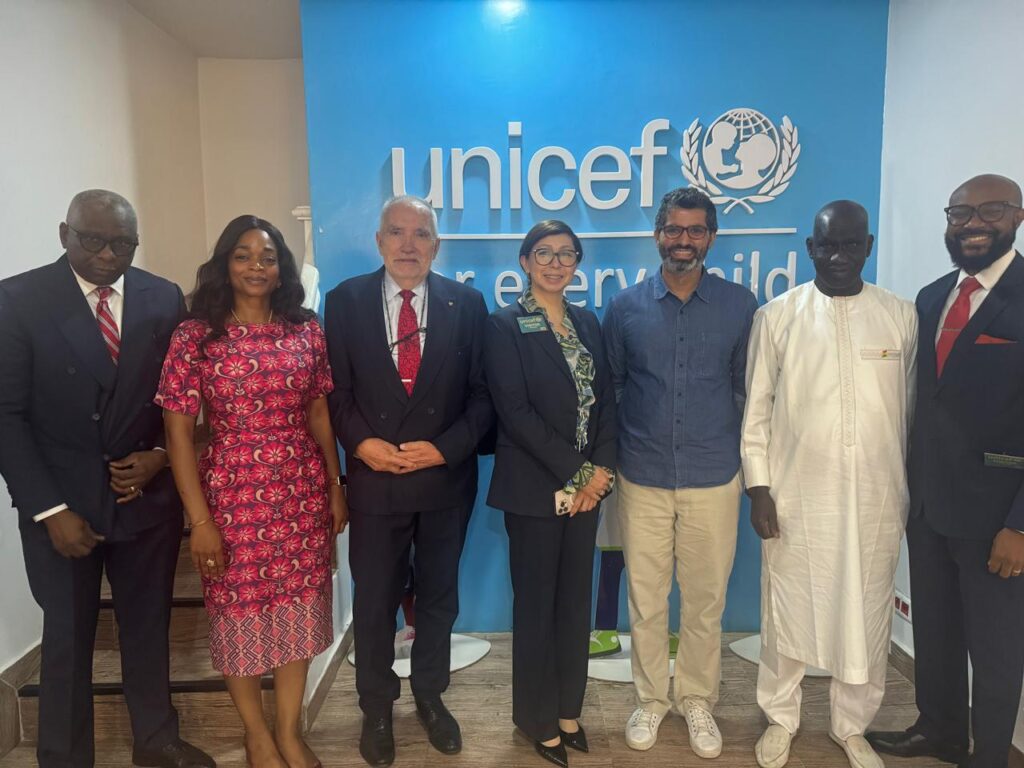In a significant move to advance youth empowerment and social inclusion through sport, the Nigerian Fencing Federation (NFF), with support from the International Fencing Federation (FIE), is exploring a strategic partnership with the United Nations Children’s Fund (UNICEF).
The initiative aims to use fencing as a tool for child development, education, peacebuilding, and sustainable growth across Nigeria and potentially the African continent.
The high-level meeting took place at UNICEF Nigeria’s headquarters in Lagos during the recently concluded 23rd African Fencing Championships. Present were FIE Secretary-General Gulnora Saidova; African Fencing Confederation President Mbagnick Ndiaye; and NFF President Adeyinka Samuel, who met with UNICEF Nigeria senior officials to discuss a collaborative framework.
UNICEF was represented by Ronak Khan, Deputy Representative (Programmes); Kundra Bharat, Skill Development and Youth Empowerment Specialist; and Emmanuel Bamidele, Youth Engagement and Partnership Officer. Others in attendance included FIE Vice President Novak Perovic, African Confederation Vice President; Obinna Anyanwu, Vice Chairman of the Organizing Committee; and Rachael Samuel, Vice President of the Nigerian Fencing Federation.
NFF President Adeyinka Samuel outlined the federation’s vision of using fencing to drive social change and youth development. Discussions emphasized the transformative potential of such a partnership to benefit communities across Nigeria and Africa.
FIE Secretary-General Gulnora Saidova said:
“At the FIE, we are committed to developing fencing globally—not only as a sport but as a platform for social and cultural development. We are thrilled about the opportunities discussed with UNICEF Nigeria and deeply value the potential of this collaboration to enhance lives across Africa and beyond.”
Samuel added, “This partnership is a major step toward using fencing to empower and uplift young people across Nigeria. We are proud to scale our grassroots efforts into a national movement for education, inclusion, and opportunity through sport.”
UNICEF Nigeria expressed strong interest in the proposal, noting its alignment with the organization’s goals in child protection, youth engagement, skill development, and peacebuilding. The agency also confirmed its capacity for national implementation through existing youth programs.
If finalized, this would mark UNICEF Nigeria’s first sports-based development initiative. All parties are optimistic about building a scalable and impactful model that could transform the landscape of youth and sports development across Africa.















